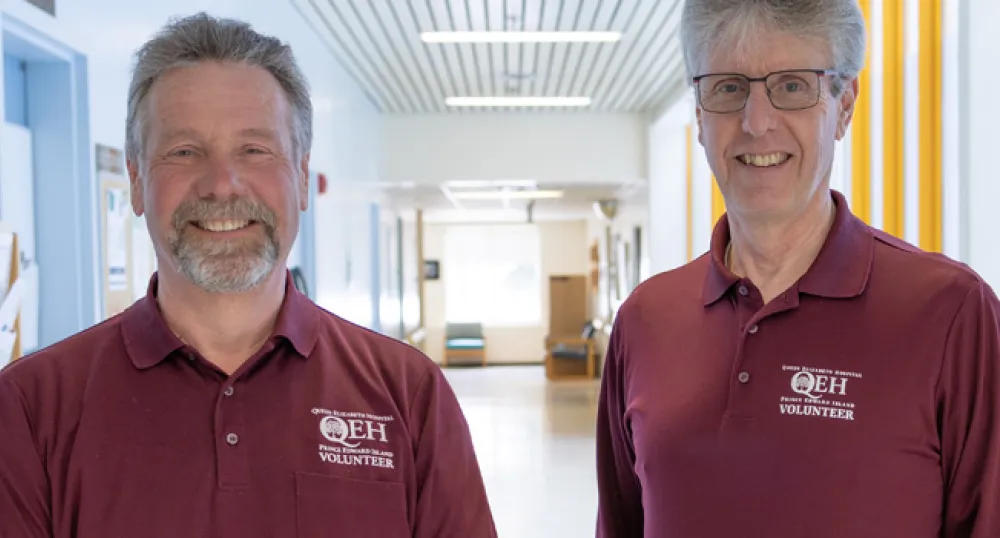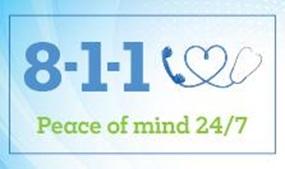Brothers give 1930 volunteer hours to the QEH

“Coming from our backgrounds, in a business servicing the public, this is kind of the same,” said Tom Clark, a volunteer at Queen Elizabeth Hospital Emergency Department. “People are coming into a space when they’re not at their best, and you must be understanding and appreciate that."
After selling their family car business in 2015, Tom and his brother Ross wanted to give back their community.
Ross was the first to volunteer in 2017. “I just wanted to get out and do things. I ended up in the ED because I wanted to get as deep into it as I could. If I could have been in the surgery suite, I would have been.They don’t let us in there, though,” he laughed.
In 2021, Tom followed his brother’s lead. “I got involved because of Ross. I was able to garner enough information from his experience to know it was something I wanted to try. We take our guidance and direction for our shifts from the triage nurses; anything they might require that a volunteer can perform, outside of medical needs, that’s what we do,” he said.
Ross has two dedicated shifts per week and has accumulated 1448 volunteer hours. Tom does one shift a week but can often be called upon to pick up shifts as needed. He’s accumulated 482 volunteer hours.
“Both Ross and Tom are amazing volunteers. They are calm, empathetic, and compassionate in the roles they provide, and they are always great to train new volunteers in the emergency department as well,” said Janice Morrison, Volunteer Services Manager for the QEH.
The Clark brothers both say they enjoy the variety of experiences they have in the emergency department.
“Generally, you’re just trying to help people, be it staff or patients, guiding people through the process of the ED. Helping people, whatever that might encompass, changes from day to day. Old ones, little ones, it doesn’t matter; we’re there to help,” said Ross.
Tom said they are like shadows during their shifts. “We stay out of the way, but at the same time, we can be there to assist with small duties that might not be the best use of the staff’s time. Staff thank you almost every time you do a shift, so that tells you a lot about the support you’re providing.”
Ross echoes that feeling. “Every nurse, every shift, has a lot of balls in the air, so if we can jump in and help with one or two of those and allow them to focus on what they’re trained for, it can make a world of difference. They’re health professionals because they want to help, but they can’t do it all, so we’re here to provide some relief in the day-to-day.”
When asked if they would recommend volunteering in a health facility, they both said, “Do it. You won’t regret it.”


